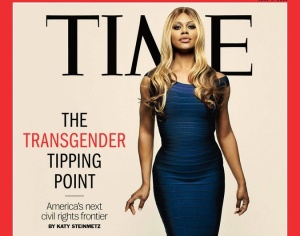Following a recent engagement with an advocate of Queer Theory, I had the opportunity to reflect on some of the challenges that arise in establishing meaningful lines of communication. Although I was not being asked to participant in a dialogue in this specific exchange, the engagement highlighted for me several of the challenges that would present themselves had that been the format.
Queer Theory is an academic lens that is primarily focused on how we know things to be true and what counts as knowledge, both of which are part of epistemology. Queer Theory is indebted to the writings of Michel Foucault and Judith Butler, among others, particularly those who identify existing structures of authority as sources of oppression that must be deconstructed.
For example, Judith Butler, in her book Gender Trouble, stresses the need to deconstruct not only gender, which is widely viewed as socially constructed, but also sex, which is widely viewed as fixed and stable aspect of personhood steeped in biology:
Is there a history of how the duality of sex was established, a genealogy that might expose the binary options as a variable construction? Are the ostensibly natural facts of sex discursively produced by various scientific discourses in the service of other political and social interests? If the immutable character of sex is contested, perhaps this construct called “sex” is as culturally constructed as gender; indeed, perhaps it was always already gender, with the consequence that the distinction between sex and gender turns out to be no distinction at all.
Whereas the biological distinction between male/female had been considered rather immutable, as we can see, there are those who wish to recast sex as just as socially constructed as gender.
That topic alone is worthy of extended analysis. However, I want to focus on the practical challenges associated with entering into dialogue with true believers of Queer Theory. In the exchange I am reflecting on, I was struck by how the appeal by proponents to concepts like microaggressions and, more recently, trigger events, function to manage community discourse on topics of genuine theological debate. (Trigger events are those circumstances that could cause symptoms to surface among those diagnosed with Post-Traumatic Stress Disorder.)
Before we go further, let me state that I believe microaggressions exist. In fact, my research institute has studied the experiences of same-sex attracted students at faith-based institutions of higher education and documented the occurrence of subtle verbal and nonverbal insults and offenses. Microaggressions are real and should be a topic of study.
But what happens if every rational point of disagreement is referred to as a microaggression?
In a recent exchange a Queer Theorist identified the phrase “Love the sinner; hate the sin” as a microaggression. I found this fascinating because, as I mentioned in the exchange, I take a completely different approach to foster cognitive complexity and empathy. I try to understand this phrase through the mind of those who use it. I find that while I do not encourage the use of this particular phrase, I understand how it frequently functions as a heuristic for traditionally believing Christians who wish to hold two claims simultaneously. The first claim being that same-sex behavior falls outside of God’s revealed will for genital sexual expression. The second claim being that there is intrinsic value and worth and dignity in all persons.
One of my goals in these kinds of exchanges is to understand the views of those with whom I disagree. I can appreciate how the “Love the sinner…” language, being as over-used as it has been, has been a source of great consternation to Queer Theorists and the broader LGBT community.
I have not seen this kind of mutual understanding as the goal of Queer Theorists. Rather, my experience has been that it is strategically necessary to frame any contrary assertion – regardless of rational argument – as a microaggression and summarily dismiss it and (by extension) those for whom it has functioned as a meaningful heuristic.
The same claim was made in response to the traditionally-believing Christian’s view that marriage is founded in the creation story as it depicts a male/female union. In other words, this perspective was also deemed a microaggression. I thought this was incredible at the time. Although I marveled at the Queer Theorist’s consistency, I was struck by how this maneuver functions in public discourse about sexual ethics: It shuts down meaningful discussion. There is little that can be said in response to the assertion that ones rational account of sexual ethics is nothing more than an aggressive and dehumanizing source of oppression.
I think a response that could be worth exploring would be to ask the Queer Theorist what kind of assertion could be made to express disagreement with the lens through which the Queer Theorist views the world. In other words, I know that I can argue my case and the case of those with whom I disagree. Can the Queer Theorist articulate a perspective that is not a microaggression or trigger point but which also stands in clear disagreement with the conclusions the person holds as an adherent of Queer Theory? If so, it may be an argument worthy of analysis. If not, it may be best to retire the notion that this was ever a rational dialogue.


 Social media has been on fire in response to the
Social media has been on fire in response to the 


